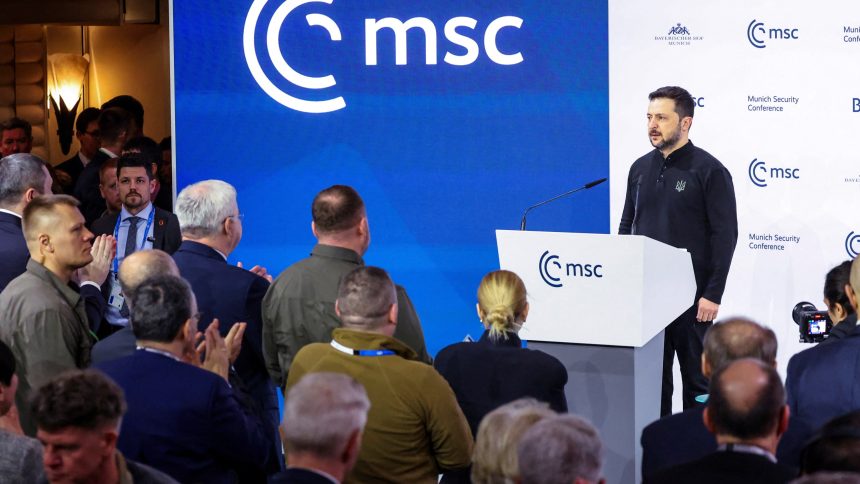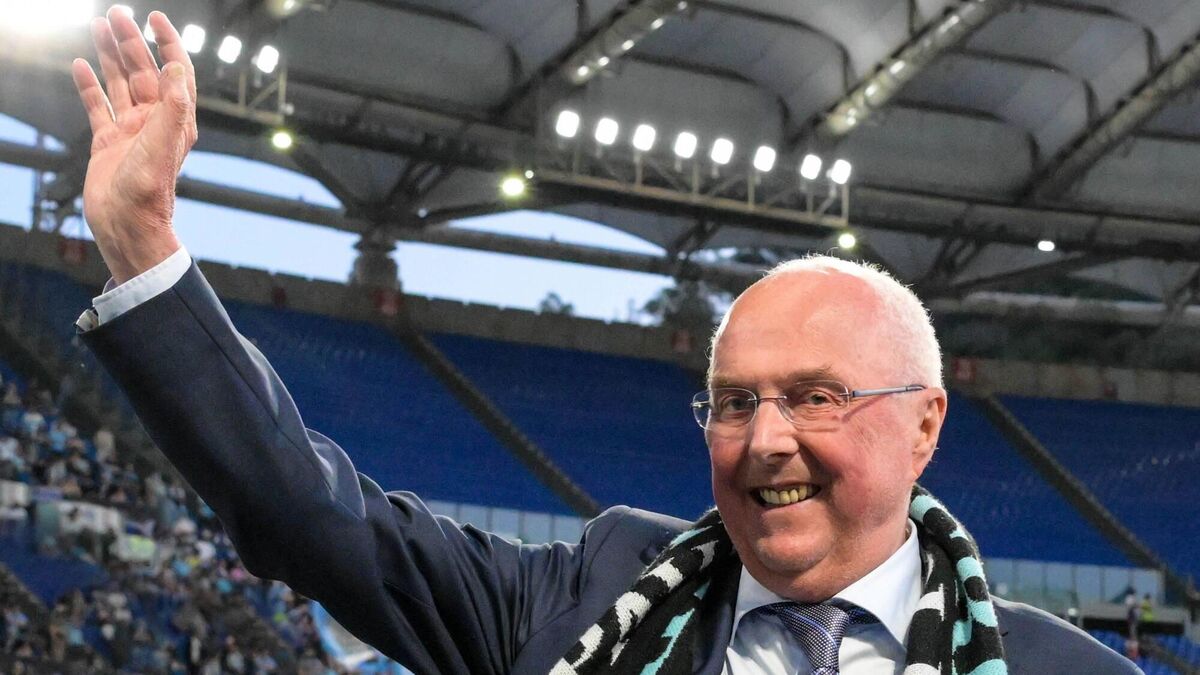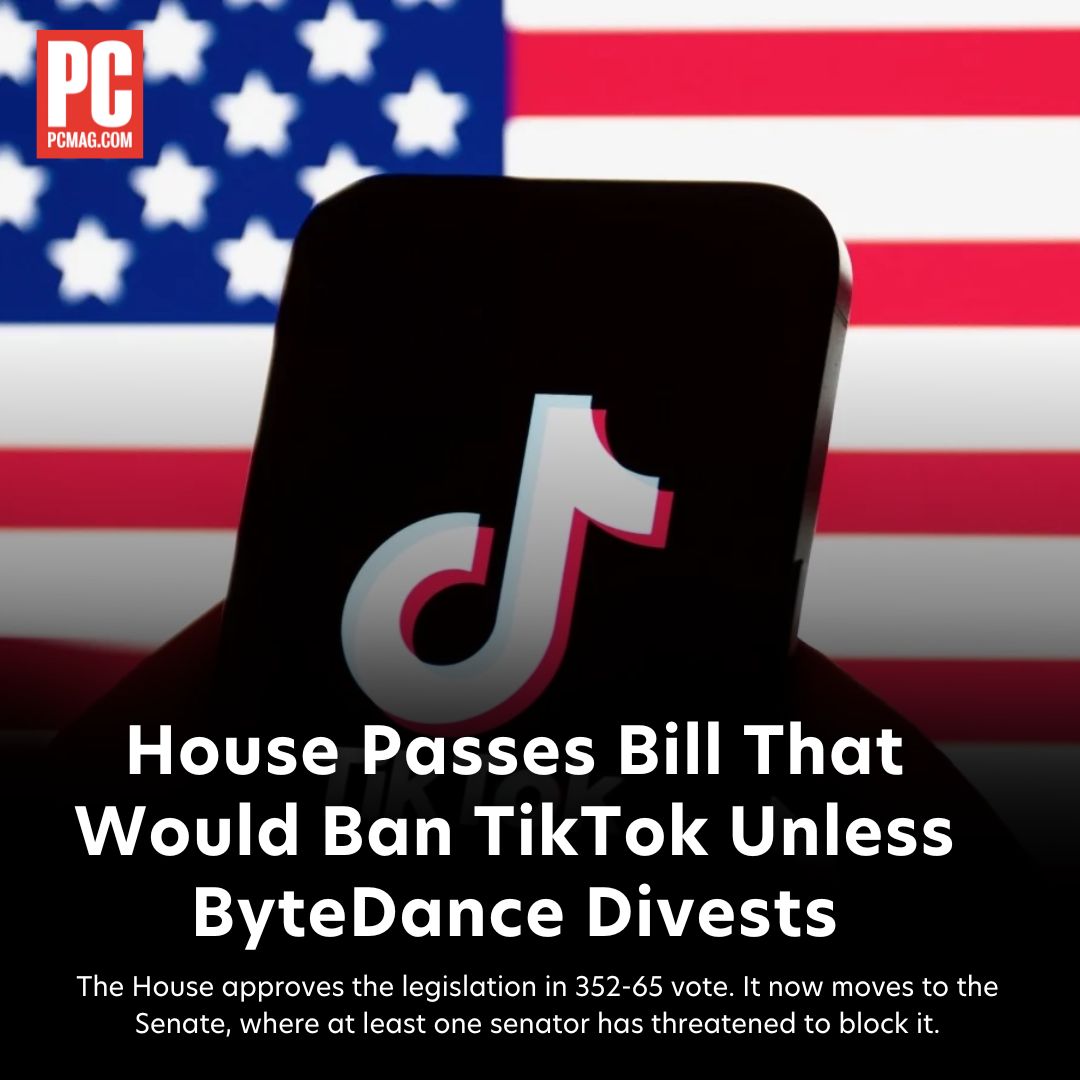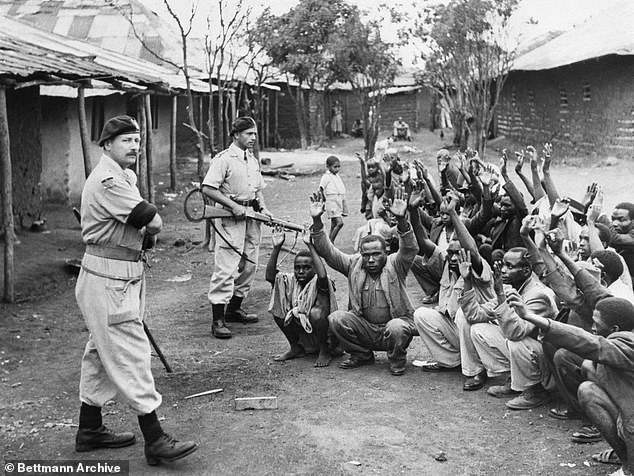Ukrainian President Volodymyr Zelensky warned on Sunday that Russia is preparing to escalate hostilities against a weakened NATO if Donald Trump undermines the military alliance. Speaking at the Munich Security Conference, Zelensky cautioned that Russian President Vladimir Putin is pushing for a ceasefire to regroup and strengthen his forces for future offensives.
Zelensky emphasized that while Trump has the influence to pressure Putin into ceasefire negotiations, the Russian leader cannot be trusted. “I don’t know if Russia will seek to control 30 percent of Europe, 50 percent—nobody knows. But they will have the opportunity if the U.S. withdraws its forces from the continent,” he said.
His remarks came ahead of urgent discussions among European leaders, including Britain and France, about the possibility of deploying troops to Ukraine as part of a potential peace agreement. British Prime Minister Keir Starmer is set to travel to Paris on Monday for an emergency summit with French President Emmanuel Macron and other top European officials.
Meanwhile, the United States and Russia are scheduled to hold their first round of peace talks in Saudi Arabia later this week, following Trump’s decision to open negotiations with Putin. The meeting between U.S. Secretary of State Marco Rubio and Russian Foreign Minister Sergei Lavrov marks the initial step toward a potential high-level summit between Trump and Putin.
French officials confirmed that Macron had invited key European leaders to Paris to discuss Ukraine’s security and broader European stability. Attendees will include German Chancellor Olaf Scholz, Polish Prime Minister Donald Tusk, EU Commission President Ursula von der Leyen, Portuguese Prime Minister Antonio Costa, and NATO Secretary-General Mark Rutte. Leaders from Denmark, Spain, Italy, and the Netherlands are also expected to participate.
European leaders have expressed concern over Trump’s unexpected decision to initiate peace talks with Russia. The announcement came shortly after U.S. Defense Secretary Pete Hegseth stated that Europe would be solely responsible for providing post-war security guarantees to Ukraine. General Keith Kellogg, Trump’s envoy to Ukraine, further heightened tensions by indicating that European governments would not be included in the initial negotiations.
French Foreign Minister Jean-Noel Barrot stressed Europe’s role in ensuring Ukraine’s security. “Who will provide the guarantees? It will be the Europeans,” he said. “Yes, Europeans will be involved in the discussions, one way or another.”
Among the key proposals to be discussed in Paris is the creation of a European peacekeeping force in Ukraine, stationed behind any potential ceasefire line. While Britain and France have committed to playing a role in security guarantees for Kyiv, they have avoided outlining specifics to avoid strengthening Putin’s negotiating position.
Germany is unlikely to participate in any European troop deployment in Ukraine due to fears of provoking a full-scale conflict with Moscow. Similarly, Polish Foreign Minister Radoslaw Sikorski ruled out Poland’s involvement, stating that NATO’s priority is protecting its eastern flank.
European leaders are also expected to express frustration over Ukraine’s exclusion from the initial U.S.-Russia talks in Saudi Arabia. “Only Ukrainians can decide when to stop fighting, and we will support them until they make that decision,” Barrot said in an interview with FranceInter.
Additionally, European leaders are expected to emphasize the need to increase military aid to Ukraine, ensuring it enters negotiations from a position of strength. Meanwhile, Washington has been seeking commitments from European allies regarding their potential contributions to a peacekeeping force along an anticipated 800-mile buffer zone between Russian and Ukrainian forces.
A U.S. State Department questionnaire sent to European governments inquired about the support they would require from Washington to deploy peacekeepers in Ukraine. NATO officials indicated that any successful deployment would depend on U.S. air support.
Zelensky also highlighted the scale of Russia’s ongoing mobilization, claiming that Putin is drafting 35,000 soldiers per month for the war in Ukraine. “He needs a pause,” Zelensky said in an interview with NBC. “He wants to train better-prepared troops, but right now, due to significant losses, they are rushed onto the battlefield with insufficient training and are dying in large numbers.”
To deter future Russian aggression, Zelensky is advocating for a multinational peacekeeping force of over 100,000 troops from the U.S. and Europe to secure any buffer zone established under a peace agreement. He further warned that Putin’s ambitions extend beyond Ukraine, cautioning that Russia could eventually target NATO nations such as Poland and Lithuania.
“We don’t know where he will go next,” Zelensky said. “But we believe that if he fails to fully occupy Ukraine, he will set his sights on NATO.”
Ukraine reported on Sunday that Russian forces have intensified attacks on both cities and military positions ahead of peace talks. “Russia, in its current state, needs war to maintain its grip on power,” Zelensky wrote on social media. “This week alone, Russia launched nearly 1,220 aerial bombs, over 850 attack drones, and more than 40 missiles of various types against our people.”
Ukraine’s military also noted a significant increase in Russian offensive operations in the east, particularly around Pokrovsk, a crucial logistics hub in the Donetsk region. Over the past 24 hours, 261 military clashes have been reported, a sharp increase from just over 100 earlier in the week. Nearly a third of these engagements occurred near Pokrovsk, where Russian forces are attempting to encircle the town and sever critical supply lines.
Military analysts expect Russia to accelerate its offensive operations in the coming weeks, seeking to consolidate territorial gains before a potential peace settlement. Concerns persist that Trump’s peace initiative may result in a ceasefire that cements Russian control over approximately 20 percent of Ukrainian territory. Any further Russian advances before a settlement would only strengthen Moscow’s hold over the occupied regions.




















